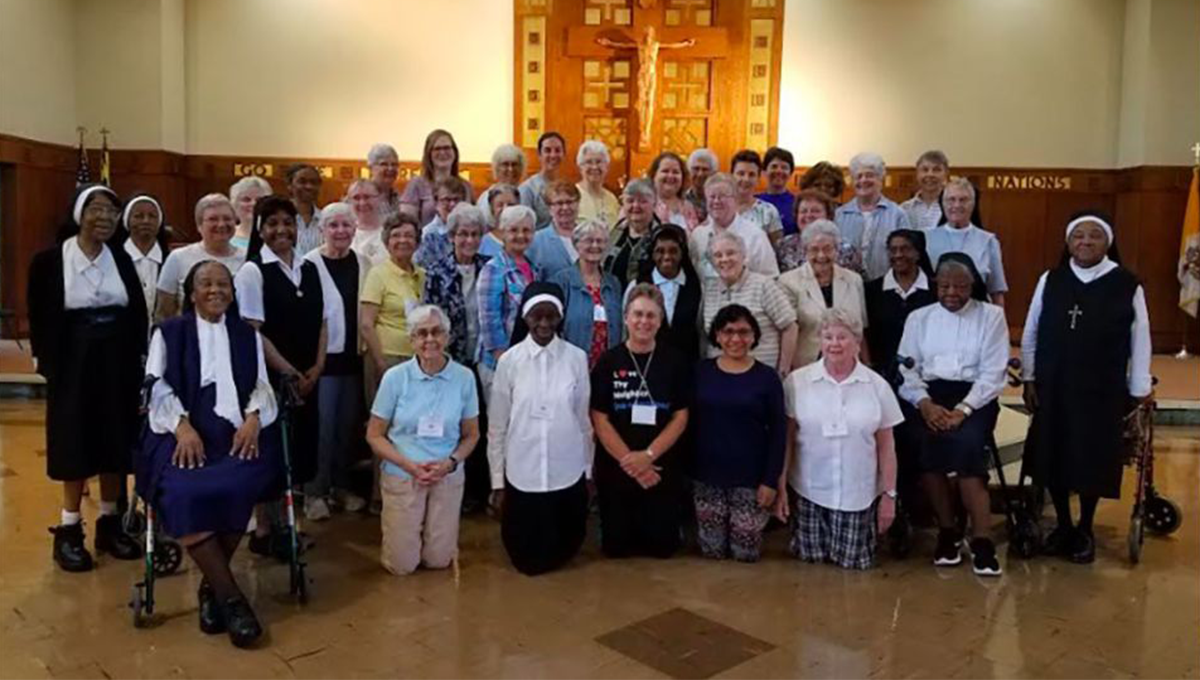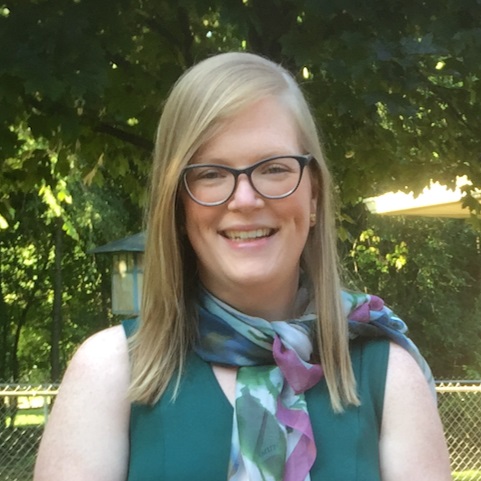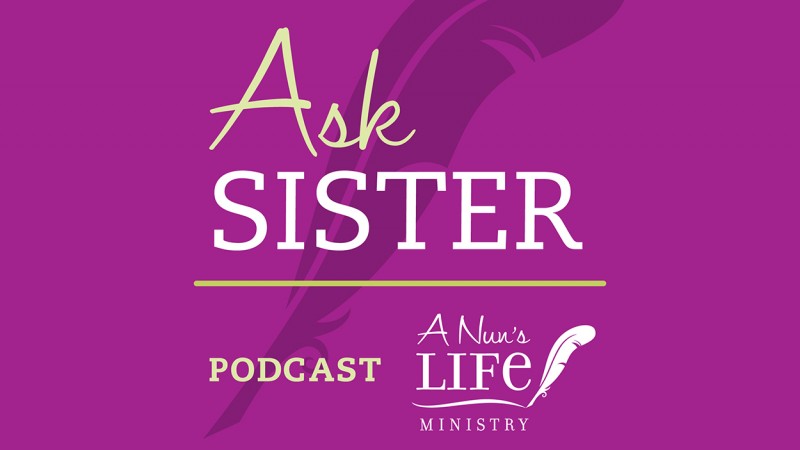
Jane Aseltyne is in first vows with the Sisters, Servants of the Immaculate Heart of Mary in Monroe, Michigan. Before entering, she served as the communications manager at A Nun's Life Ministry and worked in various ministries focused on disenfranchised populations, including teenagers and the elderly. Currently, she is a graduate student at Catholic Theological Union in Chicago, pursuing a master's degree in systematic theology and spirituality, and is involved in the Together Program, an intercultural cohort of young women religious who are studying at Catholic Theological Union and living in community.
Has your congregation or have you personally come face-to-face with your own internalized racist/caste superiority or internalized racist/caste oppression? What happened next?
As a white woman in a predominantly white congregation, it is not only critically necessary but part of our own prophetic calling as religious to confront the sin of racism. For many congregations, that means reexamining our history, and for my congregation in particular, that starts at our very foundation.
Our co-founder, Theresa Maxis Duchemin, was the daughter of a Haitian woman and an English man. She was a founding member of the Oblate Sisters of Providence, a congregation established by women of African descent. While serving as superior, she was approached by Louis Florent Gillet, a Redemptorist priest, who invited her to establish a new community in Michigan that would become the Sisters, Servants of the Immaculate Heart of Mary. 
Unsure if the Oblates would survive because of the oppressive racism within both church and civil society, Maxis left the Oblate Sisters of Providence in search of a more stable religious life. She was light-skinned and could pass as white, especially in a place where no one knew her heritage.
No one, that is, except Bishop Peter Paul Lefevère of Detroit. Lefevère welcomed a group of teaching sisters in his diocese, and so he tolerated Maxis. Yet, surviving documents reveal Lefevère's disdain for people of color. And eventually, so did his actions. He increasingly placed restrictions on Maxis and even appointed a priest as director-superior of the community over Maxis. Eventually, she was forced to leave Monroe.
Maxis lived for a time in the Immaculate Heart of Mary missions in Pennsylvania, which later became the separate foundations of Scranton and Immaculata. Angry about these missions outside of his diocese, Lefevère officially dismissed and banned Maxis from the Monroe foundation, forbidding the Monroe IHMs from contacting or even mentioning Maxis or their Pennsylvania sisters.
Because of the suppression, Maxis' role as co-founder of the IHMs, along with Gillet, was not acknowledged by the Monroe IHMs until the 1940s, when historian Immaculate Heart of Mary Sr. Rosalita Kelly wrote our history. With a renewed understanding of Maxis as co-founder, the Monroe IHMs joined with the other two Immaculate Heart of Mary congregations to continue unearthing the true story of our foundation. We have worked closely, too, with the Oblate Sisters of Providence.
For our mostly white IHM congregations, facing our racism has been a big first step, but certainly not our last.
Every few years, the two communities gather for a Healing Racism workshop in which we share our stories and listen deeply to one another, including the great suffering caused by our racism. The 2019 workshop challenged me to continue to confront my racism and acknowledge how my skin color allows me to occupy spaces freely in stark contrast with the reality for our sisters of color.
Dismantling racism is an urgent necessity, and it begins at home in our own hearts and in our congregations. Corporate statements are important, but they are not enough. We must put our words into action. We must be true to the prophetic call of religious life. If we are not willing to tell the truth about our racist history, attitudes and behaviors, how can we call ourselves prophetic?
We’re delighted to share with you this blog from the monthly feature “The Life” courtesy of our friends at Global Sisters Report. This month, The Life panelists responded to this prompt: Has your congregation or have you personally come face-to-face with your own internalized racist/caste superiority or internalized racist/caste oppression? What happened next? CLICK HERE to read more blogs from The Life series, GSR’s monthly feature about the unique, challenging, and very specific lives of women religious around the world.
Would you like to hear more from the Sisters, Servants of the Immaculate Heart of Mary? Check out this special edition of Ask Sister!
